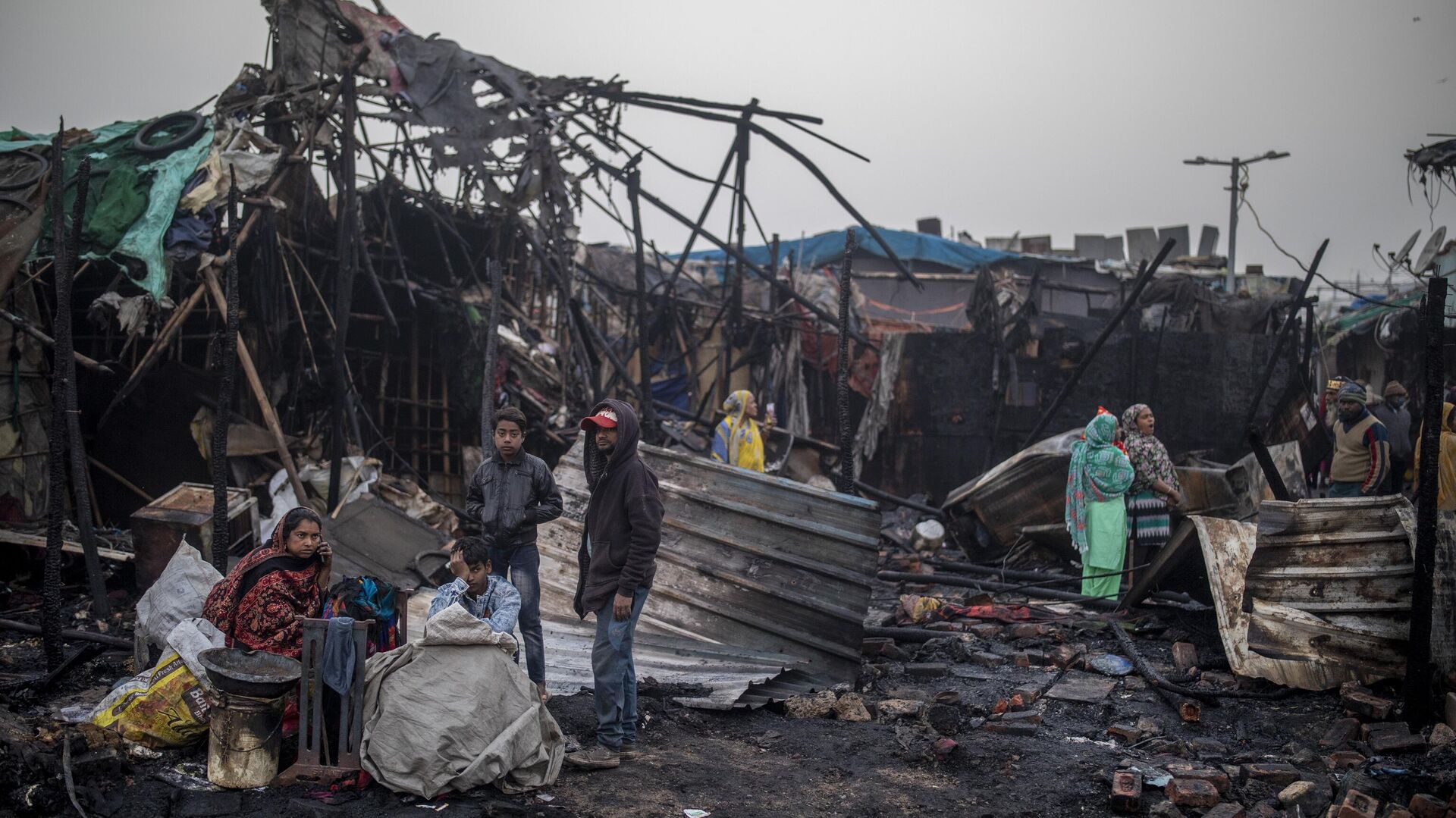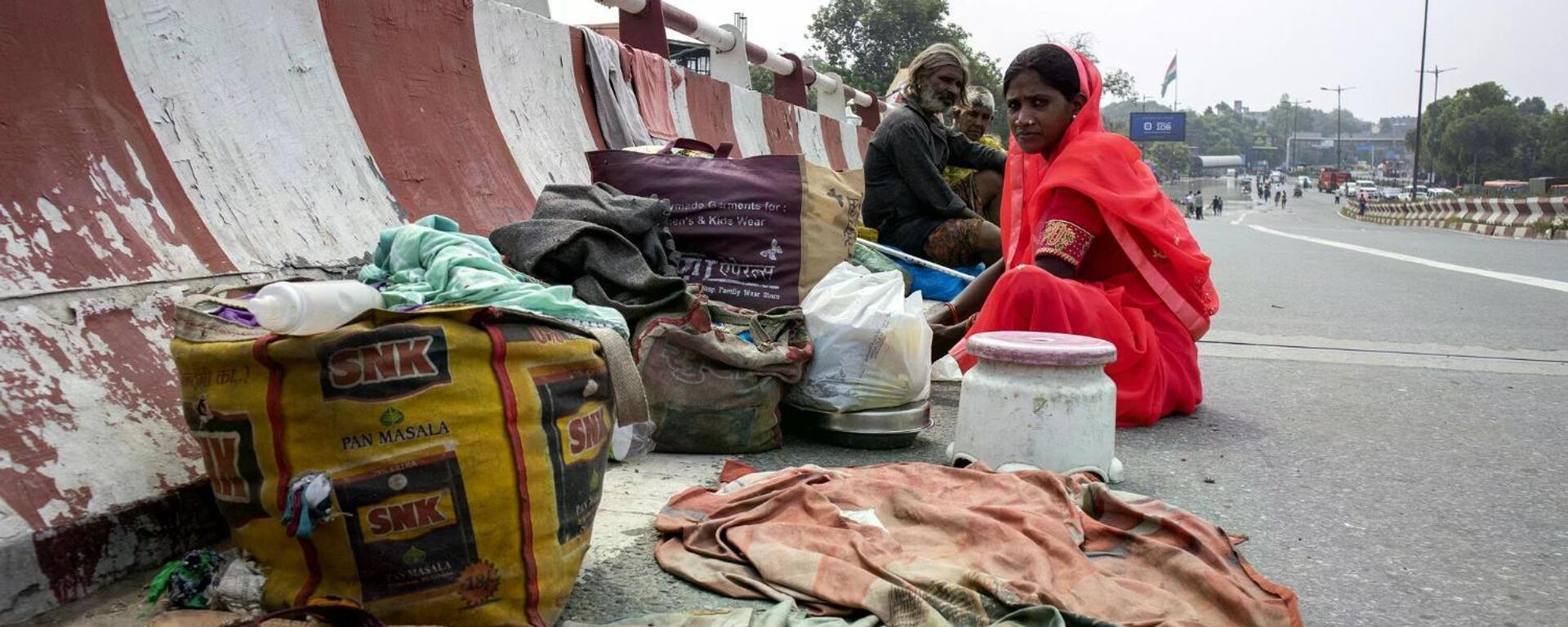https://sputniknews.in/20231228/can-delhis-slum-dwellers-be-rehabilitated-5984262.html
Can Delhi's Slum Dwellers Be Rehabilitated?
Can Delhi's Slum Dwellers Be Rehabilitated?
Sputnik India
Delhi Lieutenant-Governor ordered to frame an action plan for the rehabilitation of slum dwellers in the city. Delhi has millions of slum dwellers. Is it really possible for the government to come up with such a plan?
2023-12-28T19:58+0530
2023-12-28T19:58+0530
2024-07-24T18:26+0530
vinai kumar saxena
delhi
india
other backward class (obc)
economic challenges
rural india
sputnik
sputnik exclusives
https://cdn1.img.sputniknews.in/img/07e7/0c/1c/6007256_0:161:3071:1888_1920x0_80_0_0_a2764ee19cd2db6a1ef3bce07325ff92.jpg
Delhi's Lieutenant-Governor Vinai Kumar Saxena has recently held many meetings with officials regarding efforts to regularize illegal constructions and rehabilitate slum dwellers in the capital.Nonetheless, many have questioned the government's ability to achieve such goals in the huge city.According to Indu Prakash Singh, a member of the Supreme Court-appointed state level shelter monitoring committee, the lieutenant governor's actions come "very late."On the other hand, some slum dwellers from Delhi districts of Sarojini Nagar, Kalkaji Extention, Narela said that authorities had collected documents and evicted them from the shanties but did not give any deadline for handing over the keys to their new homes.What Does the Law Say?Regularizing illegal structures and colonies and rehabilitating slum dwellers are integral parts of the Delhi-2041 Master Plan, which is currently in progress and aims to promote the planned development of the capital.The current law stresses that forceful eviction or demolition are illegal. The 2021 Delhi Master Plan envisaged rehabilitation or relocation of the existing squatter settlements and jhuggi dwellers.Several Supreme Court judgments have reiterated that the states are responsible for providing housing to slum dwellers.Is Relocation a Viable Option?"Slum dwellers or migrants coming to the city has never been a problem. The government's failure to build new houses for them is the problem," said Prakash. According to the author, there are enough policies to protect the rights of the poor. But implementation is a problem. Prakash also argued that the government needs to be more sensitive to the issue.Sharing his lifelong experience of working on the issue, Prakash said, "One needs to have common sense while providing a house to the poor. The law clearly states that the houses provided to slum dwellers should either be well connected to their livelihood or within five kilometers of their present residence.Kavita Kate, a former resident of the Kidwai Nagar slum in Delhi, who is now a social worker, shared her personal experience: "In 2010, we received a notice to demolish our house and were given a house in Dwarka, which is about 25 km away from Kidwai Nagar". Coining the term 'city makers' to describe the migrants who venture into the urban landscape, Prakash expressed deep sadness and anguish at the realization that the very foundation of a city is laid by these hardworking laborers."They're city makers, without them, your city is at a standstill," Prakash concluded.
https://sputniknews.in/20230715/nowhere-to-go-lost-everything-displaced-families-living-at-delhis-floodplains-3010498.html
delhi
india
rural india
Sputnik India
feedback.hindi@sputniknews.com
+74956456601
MIA „Rossiya Segodnya“
2023
Deexa Khanduri
https://cdn1.img.sputniknews.in/img/07e6/0c/13/138923_52:0:533:481_100x100_80_0_0_cadf23d341691fc65ff2b22fd1afe584.jpg
Deexa Khanduri
https://cdn1.img.sputniknews.in/img/07e6/0c/13/138923_52:0:533:481_100x100_80_0_0_cadf23d341691fc65ff2b22fd1afe584.jpg
News
en_IN
Sputnik India
feedback.hindi@sputniknews.com
+74956456601
MIA „Rossiya Segodnya“
Sputnik India
feedback.hindi@sputniknews.com
+74956456601
MIA „Rossiya Segodnya“
Deexa Khanduri
https://cdn1.img.sputniknews.in/img/07e6/0c/13/138923_52:0:533:481_100x100_80_0_0_cadf23d341691fc65ff2b22fd1afe584.jpg
delhi lieutenant-governor, slum dweelers, house demolition, eviction, poor people, rehabilitation of slum dwellers, vinai kumar saxena, regularisation of illegal buildings, rehabilitation of slum dwellers, indu prakash, regularising illegal structures, rehabilitating slum dwellers, delhi master plan, forceful eviction, demolition, jhuggi dwellers, city maker
delhi lieutenant-governor, slum dweelers, house demolition, eviction, poor people, rehabilitation of slum dwellers, vinai kumar saxena, regularisation of illegal buildings, rehabilitation of slum dwellers, indu prakash, regularising illegal structures, rehabilitating slum dwellers, delhi master plan, forceful eviction, demolition, jhuggi dwellers, city maker
Can Delhi's Slum Dwellers Be Rehabilitated?
19:58 28.12.2023 (Updated: 18:26 24.07.2024) Deexa Khanduri
Sputnik correspondent
With millions of slum dwellers in the city, the government's ability to develop and execute a rehab plan is in question.
Delhi's Lieutenant-Governor Vinai Kumar Saxena has recently held many meetings with officials regarding efforts to regularize illegal constructions and rehabilitate slum dwellers in the capital.
Nonetheless, many have questioned the government's ability to achieve such goals in the huge city.
According to Indu Prakash Singh, a member of the Supreme Court-appointed state level shelter monitoring committee, the lieutenant governor's actions come "very late."
On the other hand, some slum dwellers from Delhi districts of Sarojini Nagar, Kalkaji Extention, Narela said that authorities had collected documents and evicted them from the shanties but did not give any deadline for handing over the keys to their new homes.
Regularizing illegal structures and colonies and rehabilitating
slum dwellers are integral parts of the Delhi-2041 Master Plan, which is currently in progress and aims to promote the planned development of the capital.
The current law stresses that forceful eviction or demolition are illegal. The 2021 Delhi Master Plan envisaged rehabilitation or relocation of the existing squatter settlements and jhuggi dwellers.
Several Supreme Court judgments have reiterated that the states are responsible for providing housing to slum dwellers.
Is Relocation a Viable Option?
"Slum dwellers or migrants coming to the city has never been a problem. The government's failure to build new houses for them is the problem," said Prakash.
According to the author, there are enough policies to protect the rights of the poor. But implementation is a problem. Prakash also argued that the government needs to be more sensitive to the issue.
"Right now, we are seeing so many flats being built by private builders for the middle and upper income groups. But no low-income group (LIG) flats are being built. Poor people can't buy a house from these private players because they are too expensive for them," he explained. "However, if you look at the data, it shows that 99 percent of the LIG group or economically weaker section (EWS) requires housing,'' he added.
Sharing his lifelong experience of working on the issue, Prakash said, "One needs to have common sense while providing a house to the poor. The law clearly states that the houses provided to slum dwellers should either be well connected to their livelihood or within five kilometers of their present residence.
Kavita Kate, a former resident of the Kidwai Nagar slum in Delhi, who is now a social worker, shared her personal experience: "In 2010, we received a notice to demolish our house and were given a house in Dwarka, which is about 25 km away from Kidwai Nagar".
"But most of the people living in Kidwai Nagar worked as housemaids, drivers or daily wage laborers in the area. We migrated to Delhi not for a home but for work. Anyway, it was not possible to shift to the outskirts of Delhi - Dwarka. So we refused to shift in that house," said Kate. Later, in 2016, these people were given houses near Kidwai Nagar.
Coining the term 'city makers' to describe the migrants who venture into the urban landscape, Prakash expressed deep sadness and anguish at the realization that the very foundation of a city is laid by these hardworking laborers.
"They're city makers, without them, your city is at a standstill," Prakash concluded.



